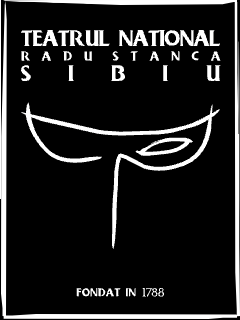The huge importance Brecht has in the contemporary theater culture is connected to the concept of epic theater. This phrase does not belong only to literature, but it also conveys the German playwright 's aspiration to reconfigure an art of synthesis by combining all literary genres, with the performance of actors who split themselves into character and narrator, with the abstract expressiveness of suggestive, not depicting, stage sets, with the musical expressiveness of songs meant to poetically advance the preceding narrative episodes. Thus, at the time when Brecht was configuring this aesthetics, much influenced by the popular theater, the modern theater show achieves an everlasting and convincing complexity and expressive power.
"The Good Person of Szechwan" is one of Brecht's most well-established texts and it is a synthesis of all his artistic and especially moral principles. In a world devastated by poverty, corruption, vulgarity and wilderness, a prostitute is chosen by the three traveling gods who have set out in search of the regenerative good in order to restore the world. The unconscious adventure of the female character, SenDe, is the background of the Brechtian demonstration according to which the human being should be apt to find a way to fulfill the ideals of good and truth. The human being must keep itself unaltered by daily life thresholds, no matter how destitute, in order to recover its original goodness.
Brecht brings about a dramatic approach on the destiny of the human being, forced to live in a rapacious and corrupt society, where the tablet of greater values has been long broken. Brecht's man is not an abstract man, either good or evil. He exhibits the tragedy of a good man destroyed in his intentions by an evil society. The conflict in this play, instilled with a vibrant poetry, remains always open, and theatergoers are called upon to draw their own moral conclusions. Thus, the open-ended play remains an apologetics of the good, an unsettling lesson in consciousness through simplicity and emotion. Brecht said in one of his writings that he wanted to form a new conscience, capable "to destroy false consciousness and establish true consciousness". That's why he made his plays to challenge people or to make people confront themselves. The simpler that task was, the better and the deeper the results. That's why parable and allegory have remained his own true forms. Thus, "The Good Person of Szechwan" is a parable of the good in a world poisoned by evil. (Anca Bradu)




.jpg?locale=en)
.jpg?locale=en)
.jpg?locale=en)
.jpg?locale=en)
.jpg?locale=en)



.jpg?locale=en)

